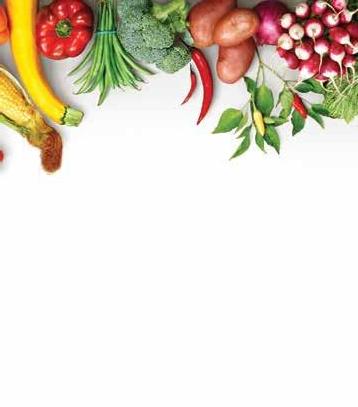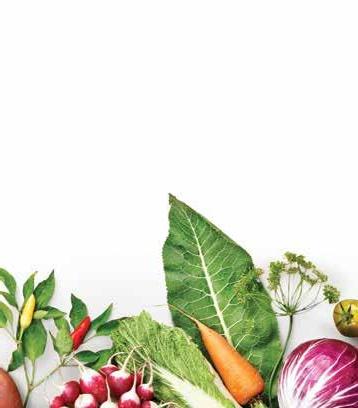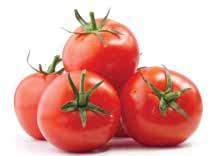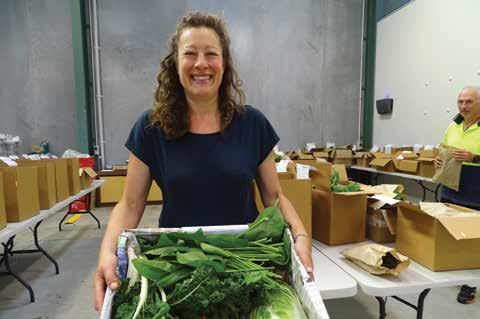
4 minute read
Fresh2U fulfils need
FRESH2U
FULFILS NEED
Words by Anne Hardie
Lucy Maxwell’s organic delivery business is in growth mode Fresh organic produce delivered to homes
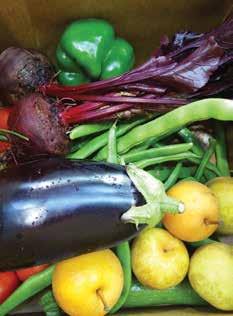
Lucy Maxwell has been packing and delivering organic produce to customers across the Top of the South for eight years, then Covid-19 created a “year of complete madness” that pushed her business to a new level.
It prompted her to leave the farm shed where she had based her business all those years, to the ample space and chillers of The Food Factory in Stoke, Nelson, which was established for start-up businesses or those wanting to grow their business. Since lockdown last year she has needed “more hands on deck” and a new system to cope with demand.
She was doing up to 17-hour days through lockdown, and though many of those customers were temporary until they could get back out to the shops themselves, a good percentage liked their home deliveries of organic food and became regular customers. Lucy sources organic vegetables, fruit, juice and eggs from about eight growers and suppliers who are mostly local, apart from those with produce that cannot be obtained locally. Produce arrives at her base on Tuesday and Wednesday morning and three part-timers help her fill the cardboard cartons – some recycled from customers – with either the customer’s specific requests, a mix of fruit and vegetables that are available at the time, or solely vegetables. Orders are couriered as far as Picton and Hokitika to customers wanting fresh organic produce delivered.
“We’re a trend. The organic market is growing and people like to know where their food is coming from.” Some customers only want certified organic produce such as Organic Farm NZ (OFNZ) which has a pod system that works on a peer-review process. It is more work but helps keep certification costs down. Other customers just want to know the food is grown organically. Lucy puts out newsletters on her website and includes as much information as she can about all the growers so customers can make choices. She says her customers know that she is the person writing the emails and newsletters and she wants to make the choices available that work for them.
“I let them know what is happening on the farms and in the organic world,” she says. “I want to support as many growers as I can as well as offering it to customers, and I want customers to have the widest choice.”
She says customers who want organic produce are prepared to pay more for it, but they represent just a percentage of the population who value organic food. “They perceive the value in organics. Until you have a reason to buy organics and to value organics, you aren’t going to pay more money.” The nature of her business means there is heaps of produce available for her customers through the growing season, but getting a good supply of produce in winter is always a challenge. So far it has been a good growing season for her organic suppliers, although tomato growers had a slow start due to colder nights. “Everyone is in a better position water wise than in the drought years, but we don’t know what normal is anymore. “I’ve been doing this for eight years now and so I turn up on their properties and have a yarn and pass information on to my customers.” She says it would be “awesome” if all the organic growers sat down together to work out their crops so that everyone got a good share of the pie. That would achieve a better selection of vegetables through the main growing season instead of large numbers of the easy-to-grow vegetables. For every new organic grower, she says another winds up their business, often because of the workload involved in organics, while the high price of suitable land restricts growth. Though Lucy is selling fresh produce, she also supplies customers with seedlings for their own vegetable gardens. She has decided it doesn’t impact on her business and it’s good for people to grow some of their food. “I looked at where I was losing customers and seasonally people are growing their own. So if they’re doing that, I can facilitate it. They won’t grow the whole range and they will still buy what they don’t grow from me. “I’m English and grew up without growing anything, so I get quite excited about it and take lots of photos. I think it’s good to grow things, on so many levels.” The former psychologist says she only became interested in food when she had children and began thinking about what they were eating. That led her to buying Fresh2U which was a small business operating from the farm shed. Her goal now is to use the space and marketing support at The Food Factory to expand the business and work out its capacity in terms of supply, time and distribution.
